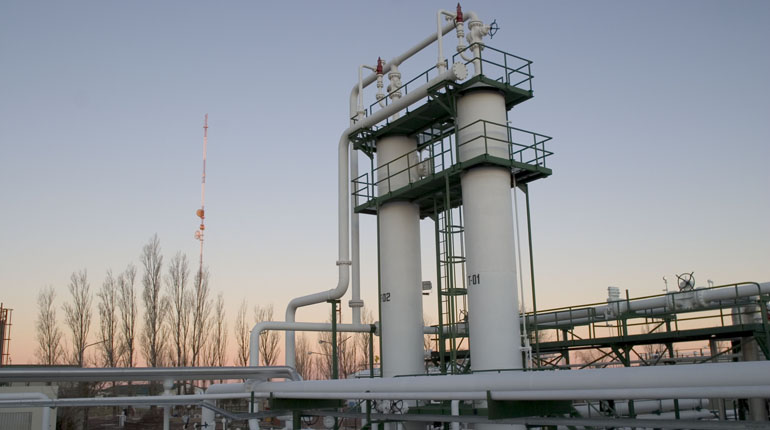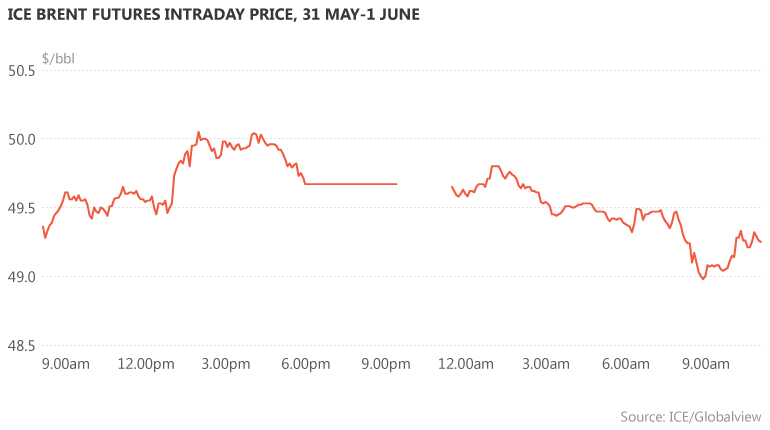 Gas infrastructure in Neuquén, home of the Vaca Muerta shale formation. (Pan American Energy)
Gas infrastructure in Neuquén, home of the Vaca Muerta shale formation. (Pan American Energy)
Argentine state-run giant YPF is planning to double down on exploration and production in the Vaca Muerta shale play in northern Patagonia while selling off its ageing conventional acreage, sources have told Interfax Natural Gas Daily.
The Argentine government has instructed YPF to prioritise unconventional exploration and divest conventional blocks with low production potential, a source close to Argentine Energy Minister Juan José Aranguren said on Wednesday.
Local media has reported YPF will seek to sell blocks in the province of Rio Negro, which is east of Argentina’s oil and gas production heartlands in Neuquén.
This could include the El Medanito, Barranca de los Loros and Santiagueño concessions, as well as the company’s stakes in the Chevron-operated Loma Negra and La Yesera blocks plus the Tecpetrol-operated Agua Salada.
The blocks produced a combined total of around 1.2 million cubic metres per day of gas in March, according to the IAPG, a producers’ group. Agua Salada is the largest gas-producing concession, with output of 767,000 cubic metres per day in March.
Interfax Natural Gas Daily understands YPF will also seek to sell acreage in parts of the Neuquén Basin where production does not justify costs. Argentina’s government is hoping to attract smaller companies to drill these areas.
"These [Rio Negro] areas have low productivity and they want to focus on areas in which YPF is the operator," Santiago Wesenack, a Buenos Aires-based analyst at Raymond James Argentina, told Interfax Natural Gas Daily last week.
"Seeing YPF selling blocks is positive for the industry. The company has too many areas to be able to develop all of them. And many of these [areas] could have low profitability for YPF, but could be reasonable for smaller companies," he added.
Field focus
"YPF will generally focus on fields with bigger margins and higher volumes," Horacio Cuenca, a Rio de Janeiro-based upstream research director for Latin America at Wood Mackenzie, told Interfax Natural Gas Daily on Wednesday.
Cuenca agreed YPF was likely to hold onto highly productive areas and divest ageing conventional interests. "However, there will be exceptions to that rule," he said. "For example, Loma La Lata, Argentina’s largest gas field, still holds considerable conventional opportunity."
Loma La Lata, which was discovered in 1977, produced nearly 12.5% of Argentina’s gas in March, according to the IAPG. Several of the country’s gains in tight gas production have come from the block, which YPF is exploring with Chevron.
The concession includes part of the Vaca Muerta shale, as well as the large Sierra Barrosa field and a number of smaller gas discoveries.
Cuenca added that YPF may sell some ageing fields in the southern Golfo San Jorge basin to domestic and smaller independent companies.
"Some of those fields have decent remaining reserves but will require secondary or tertiary recovery. That would involve injecting water and enhanced recovery techniques. Several of these projects are mainly oil and wouldn’t fit with YPF’s new overall strategy," he said.
Shifting to gas
Both experts agreed Argentina’s industry had definitively shifted its focus to gas. "YPF needs to focus on high-return gas areas and allow other players to expand or enter the industry," said Wesenack.
However, Cuenca warned that buyer interest in YPF’s depleted gas fields could be limited. "There’s not much you can do to enhance recovery from mature gas fields. So there is likely to be greater interest in the undeveloped ‘greenfield’ prospects," he said.
Small companies are likely to demand access to Vaca Muerta in addition to Argentina’s conventional opportunities. Experts have called for an institutional overhaul to allow these so-called ‘juniors’ to unlock shale acreage in the same manner as their North America counterparts.
Horacio Fernandez, secretary of the Argentine Committee of the World Energy Council, told delegates at the Argentina Shale Gas & Oil Summit in Buenos Aires last month that juniors would benefit from a return to a traditional petroleum licensing model, whereby companies receive exploitation concessions.
Argentina adopted the concession model in the 1990s when its oil and gas industry went through a period of deregulation and privatisation. However, Argentina’s federal government and provinces switched to a contract-based model after the passing of the so-called ‘Short Law’ in 2007.
Under this model, authorities reserve acreage for state-owned companies and call for bids to award E&P rights. The contract-based system became practice after the former government expropriated Repsol’s majority stake in YPF in 2012.
The timeframe for YPF’s divestment programme is unclear, and at the time of publication the company had not responded to calls seeking comment.








Talk to us
Natural Gas Daily welcomes your comments. Email us at [email protected].